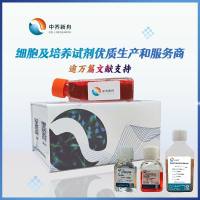Multiplex PCR for the Rapid Simultaneous Speciation and Detection of Methicillin-Resistance and Genes Encoding Toxin Production in Staphylococcus aure
互联网
互联网
相关产品推荐

人II型糖尿病(晚发性、胰岛素抗性)定量PCR芯片试剂盒
$240

Multiplex PCR MasterMix,UNG,阿拉丁
¥1197.90

Histone H3 Peptide, biotin conjugate, residues 21-44,This gene contains introns & its mRNA is polyadenylated, unlike most histone genes. The protein encoded is a replication-independent member of the histone H3 family.,阿拉丁
¥3283.90

Shiga toxin II subunit B 兔多抗 | Enterohemorrhagic E. coli (EHEC) stx2B Antibody, Rabbit PAb, Antigen Affinity Purified
¥800

Purified recombinant protein of Human 3-hydroxy-3-methylglutaryl-CoA synthase 2 (mitochondrial) (HMGCS2), nuclear gene encoding mitochondrial protein, transcript variant 2, full length, with N-terminal HIS tag, expressed in E.coli, 50ug
¥2040
相关问答

